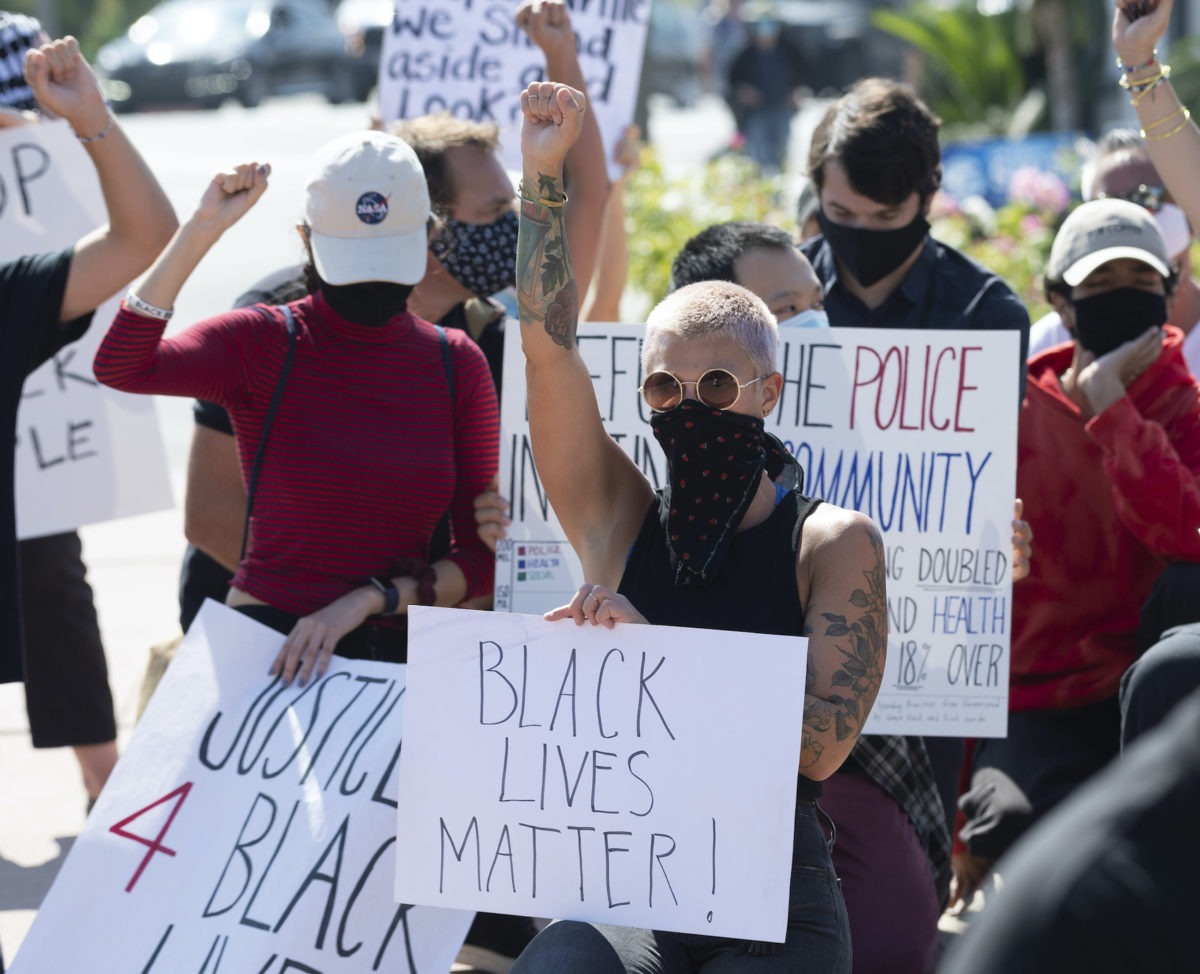California Needs A Community-Based Response To People In Crisis, Not Law Enforcement
Governor Newsom should sign the CRISES Act into law this week and invest in community partners who support people in crisis situations.

This commentary is part of The Appeal’s collection of opinion and analysis.
California is facing yet another example of why police should not be the first responders for mental health and social services calls, which are among the most common reasons people call 911. Kurt Andras Reinhold, a 42-year-old Black man, was shot dead last Wednesday by two deputies from Orange County Sheriff’s Homeless Outreach Team. Mr. Reinhold did not need an officer; he needed a home.
This public health crisis called racism is literally killing us. California needs community-based responses for people in crisis that are not controlled by law enforcement. The CRISES Act (Assembly Bill 2054), a bill on Governor Gavin Newsom’s desk authored by Assemblymember Sydney Kamlager, will save lives by investing in trusted community partners to support people in crisis situations. The deadline for the governor to sign or veto legislation is Wednesday.
It is no secret that our current mental health care system is failing some of our most vulnerable community members and relying heavily on first responders to fill in critical gaps. As an emergency room registered nurse in Sacramento, I spent over a decade working in some of the state’s most notable inpatient psychiatric healthcare facilities. I now work at a Northern California adult and pediatric Level 1 trauma center.
To address the lack of humane options for people in mental health crisis, brave doctors, nurses, and community members came together to create Mental Health First, or MH First, a mobile mental health crisis response team in Sacramento. Our model provides non-punitive, patient-centered crisis intervention for individuals in a mental health crisis.
The Sacramento Police Department receives an average of 35 mental health calls a day through 911. Given the opportunity, resources, and support, a program like MH First could respond to at least half of those calls. Funding community-based responses would help keep our neighbors safe, out of jail, and in their homes.
The increased stress of living through a pandemic has meant a surge in mental health calls as well. Failing to humanely and strategically address this growing public health crisis will cost us more than we can both morally and fiscally afford.
MH First provides support for people through a variety of crises. We have helped young, vulnerable people keep their housing; supported community members struggling to find a reason to live; given overwhelmed caregivers tools to take care of themselves; and kept someone from running in and out of traffic. The people we serve come from all walks of life, and are male, female, trans, and nonbinary. They come from an array of ZIP codes, sexual orientations, and ethnicities. We have done this with volunteer doctors, nurses, and community members. With donated vehicles, supplies, and space.
The CRISES Act will allow us to continue to build and expand this community-based infrastructure to support people in crisis. As we see the demand for our services skyrocket during this pandemic, we must increase our capacity to meet this need in our traditional systems, as well as in our communities.
We all know someone, love someone, or are that someone living with mental illness. In a time of crisis, I imagine we all would prefer our loved one or ourselves be lifted up with a kind hand and not handcuffs.
After the murder of George Floyd in Minneapolis and the subsequent uprising for Black lives, Governor Newsom declared that California will not go backward. But if California is to move forward and take bold action to address the crisis of police violence toward Black people, a new direction is required. The CRISES Act is that new direction and will help our state move beyond the status quo and toward a California that invests in community responses that are led by community, not the people who are killing us.
Asantewaa Boykin is a founder of the Anti Police-Terror Project and the program director for MH First Sacramento.
